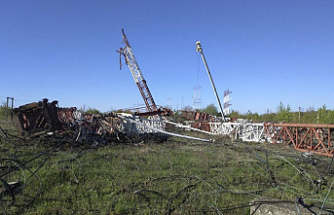These measures include the freezing of Russian central bank's foreign accounts, prohibiting U.S. oil imports, seizing real estate and yachts belonging to Russian oligarchs who have ties to Russian President Vladimir Putin.
Many western companies have shut down operations in Russia. Economists fear that Russia will fall into recession as a result of the international response. Experts are questioning the effectiveness of some sanctions, despite Putin's apparent reluctance to relent despite these risks.
Tania Babina is a Ukrainian economist who is also an assistant professor of finance and business at Columbia Business School. She told CBS News that some of the sanctions' reasoning was flawed. The idea of punishing the Russian financial elites with confiscation of their wealth is unlikely not to influence Putin. Such hopes underestimate his power.
Babina stated that "The first narrative is the oligarchs are going to somehow lose their yachts, and then they're going be angry and will stop Putin." "This assumes that Putin is controlled by oligarchs, but in fact it's Putin, his KGB, and state police that run the state. Oligarchs are puppets who manage his empire. That's a wrong assumption.
Babina also said that there is another misconception: Russian corporations will withdraw from Russia, which would help to galvanize public opposition against the Ukraine war. The second false assumption is that Russians will not miss their McDonald's, and will protest against Putin in large numbers. The reality is that most Russians support this war because of their brainwashing.
In assessing the effects of sanctions, it is important to consider Putin's control on media in Russia. Julia Ioffe, a journalist who has been covering the Kremlin over a decade, told CBS News two-thirds of Russians approve of the invasion "because they don't support the actual war that is happening."
"Russians are more idealistic than materialistic," Babina said. Babina said that if they believe they are protecting their brothers from Nazis they will take a lot more pain."
Russian oil and gas buyers continue to finance Putin’s war. Energy accounts for approximately 70% of Russia's exports.
Babina stated, "I believe we need to rethink what the West can accomplish here, and there is no other greater, more impactful, than to stop buying Russian oil or gas."
Babina believes that Putin might have other plans than Ukraine.
"His problem does not lie with Ukraine, he made it clear that his problem was with NATO in December. She said that the west civilization doesn't take her ambitions seriously for some reason.












